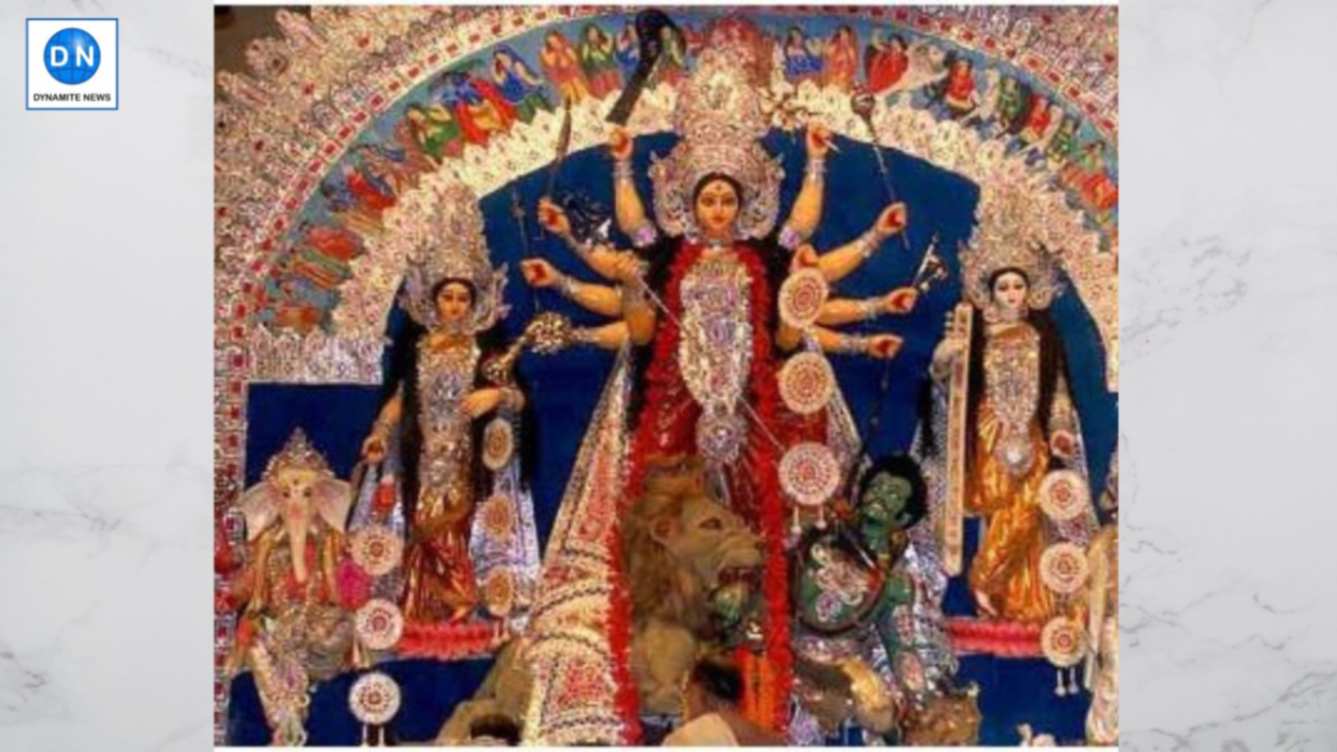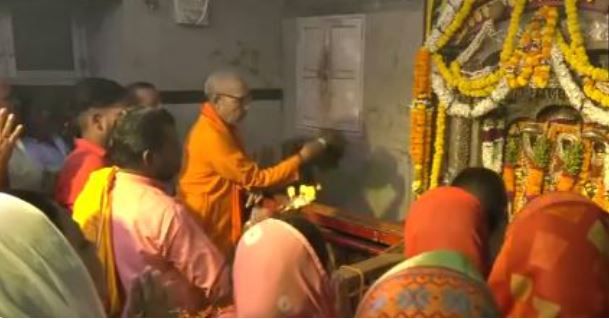 English
English

The occasional morning aarti was performed at the several temples in the national capital on Tuesday early morning on the sixth day of Shardiya Navratri. Read further on Dynamite News:

New Delhi: The occasional morning aarti was performed at the Jhandewalan temple in the national capital on Tuesday early morning on the sixth day of Shardiya Navratri.
Goddess Durga worshipped
On this day, Goddess Durga is worshipped in the form of Maa Katyayani.
Meanwhile, the aarti was also performed at Badi Devkali Devi Temple in Ayodhya, Uttar Pradesh.
According to Hindu mythology, Lord Brahma, Vishnu and Shiva combined their powers to create Goddess Katyayani. Also known as Mahishasurmardini, Maa Katyayani killed the demon Mahishasura.
She is regarded as one of the most violent forms of Maa Durga. She is four-armed and rides a lion.

Literal meaning of Navratri
Navratri, which means 'nine nights' in Sanskrit, is dedicated to the worship of Goddess Durga and her nine avatars, known as Navdurga. The festival is celebrated with great devotion across India, with rituals and prayers honouring the goddess in her various forms.
During the nine-day Navratri festival, devotees worship Maa Durga's nine incarnations in order to obtain her blessings.
Ristualistic fasts
During these nine days, people maintain ritualistic fasts, recite shlokas dedicated to each goddess, wear new clothing, offer bhog, and clean their homes.
Hindus observe four Navratris throughout the year, but only two--Chaitra Navratri and Shardiya Navratri--are widely celebrated, as they coincide with the changing of the seasons.In India, Navratri is celebrated in various ways.
In North India, particularly in Uttar Pradesh, Uttarakhand, Bihar, and Madhya Pradesh, the Ramlila, a dramatic re-enactment of scenes from the Ramayana, is organised.
This festival
The festival concludes with Vijayadashami, marked by the burning of King Ravana's effigies. (with Agency inputs)
No related posts found.